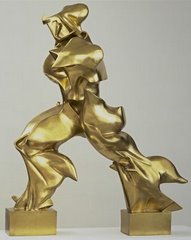![[booklover]](http://si.wsj.net/public/resources/images/OB-IA246_booklo_C_20100401214341.jpg) Every so often in an attempt to expand my fiction horizon, I will pick a book from one of the literary prize lists. I am disappointed enough by these selections to wonder if I am missing something. What do the panels look for when judging whether a book is commendable?
Every so often in an attempt to expand my fiction horizon, I will pick a book from one of the literary prize lists. I am disappointed enough by these selections to wonder if I am missing something. What do the panels look for when judging whether a book is commendable? —David Friedricks, Albany, N.Y.
The word "panels" is important to keep in mind when judging the judges of literature. If you have ever been on a jury or a board, you know that group decisions almost always involve negotiation and compromise. Or as David Lodge, who has been a judge for Britain's most prestigious literary prize, the Man Booker, put it, "A committee is a blunt instrument of literary criticism." Another British novelist, Julian Barnes, called the Booker "posh bingo."
The original description of the Pulitzer Prize for fiction (first awarded in 1918 to the forgotten "His Family" by Ernest Poole) was for the novel "which shall best present the wholesome atmosphere of American life, and the highest standard of American manners and manhood." That was later changed to the novel that "shall best present the whole atmosphere of American life."
Like many people who consider themselves alert readers of fiction, I was taken by surprise by the recent announcement that "Tinkers" by Paul Harding had won this year's fiction Pulitzer. Fortunately, my library was ahead of me. I read and admired "Tinkers"—it's a small (in size), highly polished gem, a dying man's ruminations on clocks, fathers and nature. And it's unusual, a trait I suspect may be especially valued when facing down a mountain of contemporary fiction ("No! Not another disintegrating marriage! Not another kid goes bad on drugs!")
I read literary prizewinners because I like to compare my opinion to that of the judges—critics, scholars, other authors. I often applaud their choices (and sometimes am appalled). A few Pulitzer-winning novels that I also loved: "Lonesome Dove" by Larry McMurtry; "Middlesex" by Jeffrey Eugenides; "Olive Kitteridge" by Elizabeth Strout; "Empire Falls" by Richard Russo; "The Stone Diaries" by Carol Shields; "A Thousand Acres" by Jane Smiley; and "The Known World" by Edward P. Jones.
But it's worth recalling what Sinclair Lewis wrote when he refused the 1925 Pulitzer Prize for "Arrowsmith": "By accepting the prizes and approval of these vague institutions, we are admitting their authority, publicly confirming them as the final judges of literary excellence, and I inquire whether any prize is worth that subservience."



